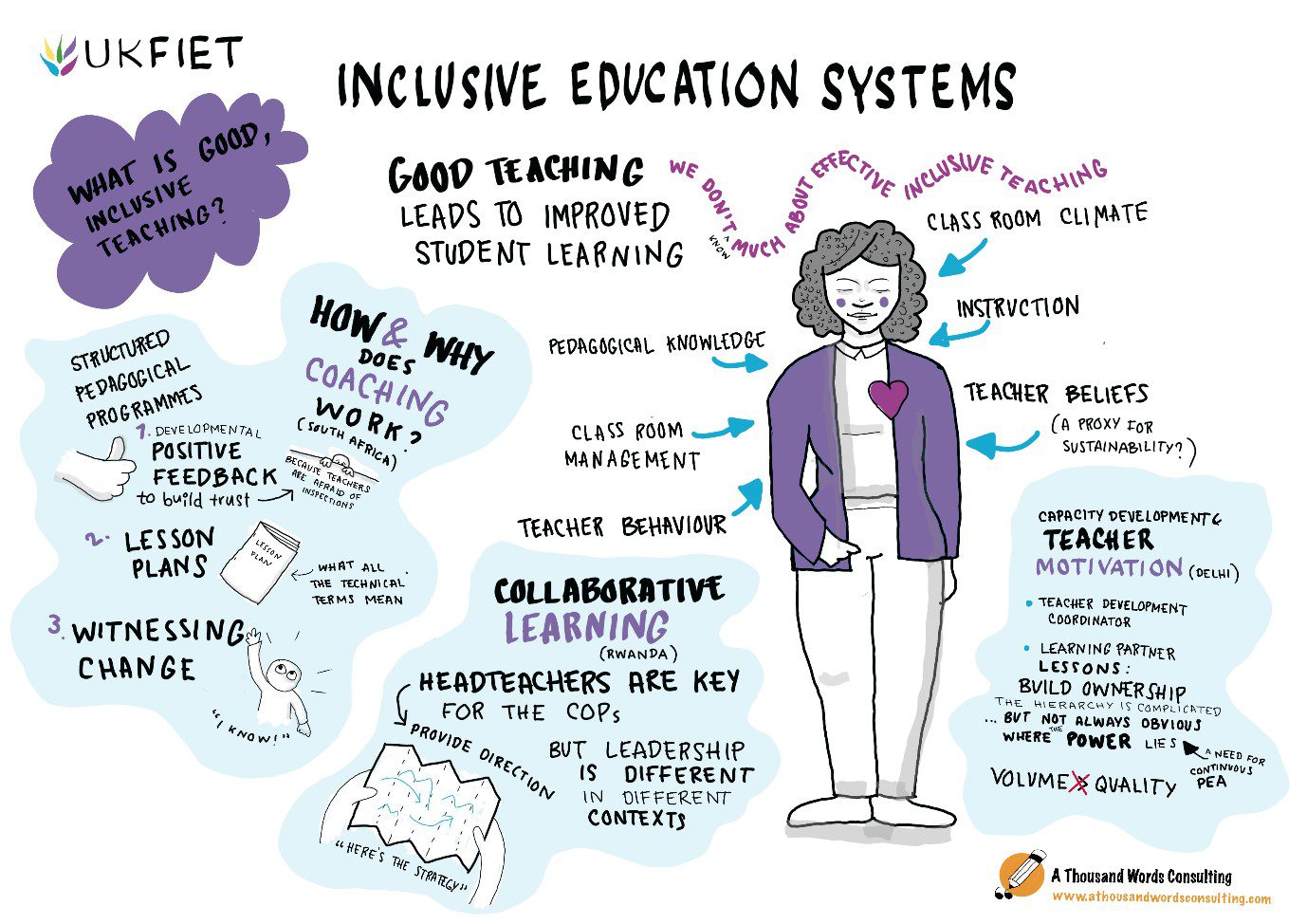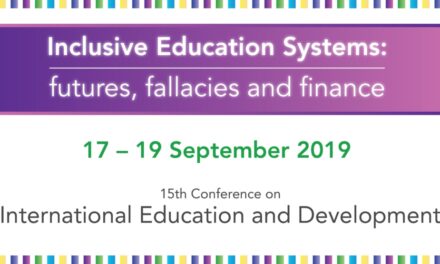Interview with theme co-convenor of one of six 2019 UKFIET conference themes, ‘Education technology and data science for inclusive systems’: Kate Radford, Programme Director – Can’t Wait to Learn, War Child Holland.
Kate is co-convening this theme with Patrick Montjouridés, who has also given an interview on his thoughts and expectations for the theme.
 What excites you about the theme of ‘education technology and data science for inclusive systems’?
What excites you about the theme of ‘education technology and data science for inclusive systems’?
Globally, too many millions of children do not have meaningful learning opportunities. Of those children actually in school, many millions are simply not learning. As a global education sector we have all been working to transform this bleak picture. Global advocates like Gordon Brown or Julia Gillard have been strongly advocating for more and better financing options. The education research and donor communities have been championing initiatives to increase the evidence base of what works and why. Children and their communities have been strongly voicing their desire for more accessible and effective quality learning opportunities.
Despite this global effort, the journey to providing accessible and meaningful inclusive education is far from over. Data science and education technology are ‘new’ tools in this global endeavour. Data science offers the promise to promote better analysis of progress and challenge. Technology offers the promise of providing new and effective learning materials presented at scale in new mediums which could be tailored to currently excluded children’s specific needs, thus raising the bar on inclusion.
This is the promise. The reality is that there is still not enough evidence about what works, why and under what circumstances. The UKFIET conference provides the perfect opportunity for policy makers, practitioners and researchers to come together and compare experiences and share their research results and analysis. Being able to convene with my peers and co-develop strategies and policy based on the real evidence currently being developed is why I am so excited to be part of UKFIET this year.
How does your theme link to the overall 2019 conference theme of inclusive education systems?
Education technology and data science links in many ways with the overall theme of the 2019 UKFIET conference: “Inclusive Education Systems: futures, fallacies and finance”. Appropriate use of data science and education technology promises the potential to yield a wealth of data on children’s progress at an individual level, but also as part of a wider education system analysis. This data is crucial to developing appropriately-targeted education programmes, designed to meet specific education needs for individual children, taking them along the path to achieving the learning outcomes they need, rather than the current one-size-fits all model.
Sharing (de-identified) data on a large scale indicating children’s general learning promises allows for better tailoring and increased efficiency of education programming response/streaming children into appropriate programming, including tailored teacher training. Tracking children’s data will allow for teachers to better track students’ progress and provide extra support or stimulation where necessary.
This is the promise, the future as it were. What is the reality now? How sustainable and achievable is this promise in a poorly-financed global education sector? There are some promising examples of education technology being tailored to specific, marginalised groups which are not currently being served by mainstream education. The UKIFET conference will provide the opportunity for policy makers, practitioner and researchers to explore these promising inclusive practices in depth and suggest ways to navigate pathways to inclusive education systems at scale. We are seeing now the promise of education technology and data science. What will we need to bring this promise to reality to realise inclusive education systems?
What kind of papers would you like to see submitted under your theme?
I would like to see papers which discuss the application of education technology in real world settings. Settings where education systems may be struggling, programme delivery is challenging and teachers under pressure. Papers which explore how and what impact – whether it be improved learning outcomes, increased teacher competency or education systems strengthening – is being achieved using technology within education programming.
I would like to see papers discussing how education technology can complement and strengthen teaching practice, and the challenges involved in this. The use of technology in education promises to yield large banks of data for use in programme improvement and impact measurements. How has this data been used to date? What does it promise? What are its dangers?
Sustainability of education technology at scale will demand new collaborations within the education sector. Papers exploring how collaboration with private and public sector actors can support sustainability ambitions of education technology interventions would add to the debate.
UKFIET is also a forum for providing alternative viewpoints for discussion with peers and submissions should take advantage of this. What are the challenges in education technology policy and practice today? How will we, as a sector, harness the potential of education technology and the complex partnerships between public and private sector it brings? What are the power dynamics at play when disparate actors come together to develop education technology-focused programming? How can we manage these complex partnerships effectively to support impact in terms of more learning for more children globally? Education technology, when thoughtfully deployed, should embrace the challenge of addressing the global inclusion in education crisis.






